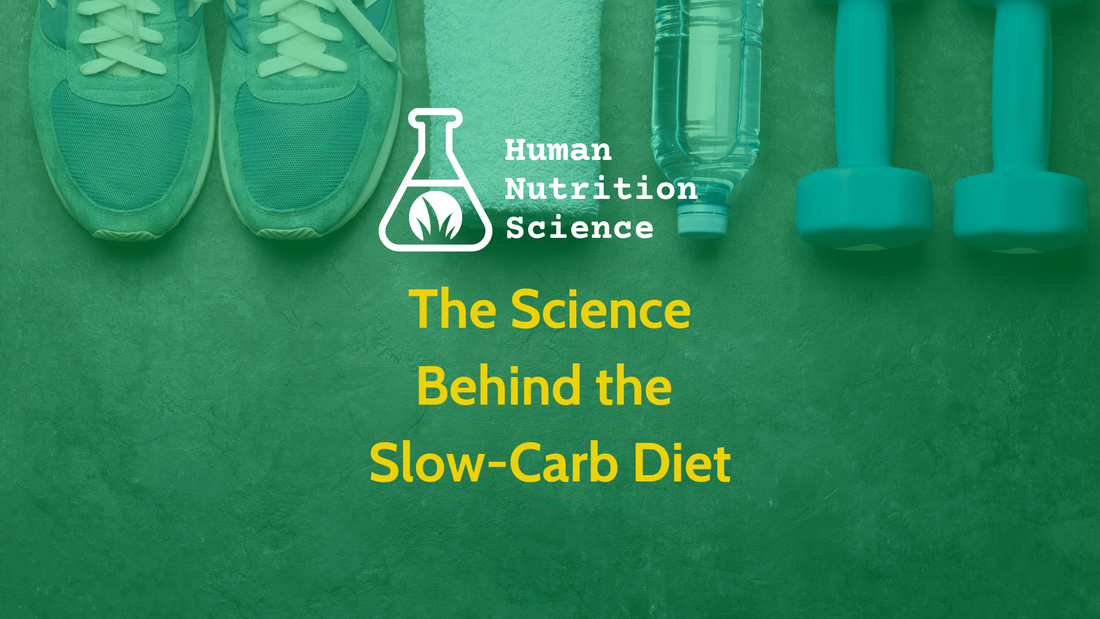
The Science Behind the Slow-Carb Diet
In a world of countless diet options, Tim Ferriss' Slow-Carb Diet offers a straightforward yet effective approach to nutrition that aligns with natural eating patterns. At Modern Pastures, we believe in evidence-based approaches to health and nutrition, which is why we're exploring this practical eating strategy that complements our sustainably raised meats.
What Is the Slow-Carb Diet?
Introduced by Tim Ferriss in "The 4-Hour Body," the Slow-Carb Diet is built around five simple rules:
- Avoid "white" carbohydrates - Eliminate bread, rice, cereal, potatoes, pasta, and fried food with breading.
- Eat the same few meals repeatedly - Focus on proteins (meat, fish, eggs), legumes (beans, lentils), and non-starchy vegetables.
- Don't drink calories - Avoid milk, soda, and fruit juice. Water, unsweetened tea, and coffee are acceptable.
- Don't eat fruit - With the exception of avocados and tomatoes, fruit is temporarily avoided.
- Take one day off per week - This is the famous "cheat day," where you can eat whatever you want.
What makes this approach unique is its focus on minimizing insulin spikes while maintaining a practical, sustainable eating pattern built around whole foods and includes a planned day of indulgence.
The 30/30 Rule: Kickstarting Your Metabolism
One of the most powerful concepts from "The 4-Hour Body" is the 30/30 rule: consuming 30 grams of protein within 30 minutes of waking. This simple practice sets the metabolic tone for the entire day and provides several scientifically-backed benefits.
The Science Behind Morning Protein
When you wake up, your body has been in a fasted state for 8-12 hours. During this time, muscle protein synthesis has slowed, and your metabolic rate has naturally decreased. Strategic morning protein intake triggers several beneficial physiological responses:
Thermogenesis Activation: Protein has the highest thermic effect of all macronutrients, meaning your body burns more calories digesting and processing it compared to carbohydrates or fats. This morning protein boost can increase your metabolic rate by 15-30% for several hours.
Muscle Protein Synthesis: After the overnight fast, your muscles are primed for protein uptake. Early morning protein consumption maximizes muscle protein synthesis, helping preserve and build lean muscle mass.
Stable Blood Sugar: Starting with protein helps prevent the blood sugar spikes that often occur with carbohydrate-heavy breakfasts, setting you up for more stable energy levels throughout the day.
Appetite Regulation: Morning protein stimulates the release of satiety hormones like GLP-1 and PYY, which can reduce overall calorie intake for the rest of the day.
A typical 30-gram protein breakfast might include three eggs with a side of lean beef, or a protein-rich omelet with vegetables. The key is prioritizing protein density first thing in the morning.
The Science Behind Slow-Carb Success
Glycemic Index and Insulin Management
The foundation of the Slow-Carb Diet is based on the glycemic index (GI) and glycemic load (GL) of foods. Foods with a high GI cause rapid spikes in blood sugar, triggering insulin release. By avoiding high-GI foods and focusing on low-GI whole foods (like grass-fed beef and non-starchy vegetables), the Slow-Carb Diet helps maintain steadier blood sugar levels, creating several beneficial effects:
- Reduced fat storage: When insulin levels are lower, the body is less likely to store excess energy as fat
- Improved energy levels: Without blood sugar crashes, energy remains more consistent throughout the day
- Enhanced fat oxidation: The body becomes more efficient at burning stored fat for energy
Protein Satiety and Thermogenesis
A cornerstone of the Slow-Carb Diet is adequate protein intake, which provides multiple metabolic advantages:
- Increased thermic effect: Protein requires significantly more energy to digest than carbohydrates or fats
- Enhanced satiety: Protein stimulates hormones that signal fullness, reducing overall calorie intake
- Preserved lean muscle mass: Sufficient protein ensures the body burns fat rather than muscle during weight loss
This is where quality protein sources, like the sustainably raised beef from Modern Pastures, become especially valuable, providing not only high-quality protein but also beneficial fatty acids that support metabolism.
The Power of Whole Foods and Vegetables
The Slow-Carb Diet's emphasis on whole, unprocessed foods provides numerous advantages beyond weight management. Non-starchy vegetables form the foundation of most meals, offering:
Micronutrient Density: Vegetables like spinach, broccoli, asparagus, and Brussels sprouts provide essential vitamins, minerals, and antioxidants that support optimal metabolic function and cellular health.
Fiber for Satiety: The fiber in vegetables promotes feelings of fullness while requiring minimal calories, helping create the caloric deficit needed for weight loss without constant hunger.
Digestive Health: A variety of vegetables feeds beneficial gut bacteria, supporting a healthy microbiome that's increasingly linked to metabolism, immune function, and even mental health.
Natural Detoxification: Cruciferous vegetables like broccoli and cauliflower contain compounds that support the body's natural detoxification processes.
The beauty of focusing on whole foods is their inherent satiety signals – it's difficult to overeat steamed broccoli and grilled beef, but remarkably easy to overconsume processed alternatives.
Legumes: A Supporting Role
While legumes like black beans and lentils play a role in the Slow-Carb Diet by providing slow-digesting carbohydrates and fiber, they're just one component of a whole foods approach. Many successful practitioners find that emphasizing vegetables and quality proteins forms the core of their meals, with legumes serving as an optional addition rather than a requirement.
The Psychology and Science of the Cheat Day
Perhaps the most discussed aspect of the Slow-Carb Diet is the weekly "cheat day" or "refeed day." While initially this might seem counterintuitive to weight loss goals, there's substantial science supporting this approach:
Leptin Resetting
Leptin is a hormone produced by fat cells that signals satiety to the brain. During caloric restriction, leptin levels naturally decline, which can increase hunger, reduce metabolic rate, and decrease motivation. A strategic high-calorie day temporarily boosts leptin levels, potentially "resetting" these adaptations and preventing the metabolic slowdown that often accompanies dieting.
Psychological Sustainability
The cheat day creates a powerful psychological framework that makes the diet more sustainable long-term:
- Reduces decision fatigue: For six days, food choices are simplified and clear
- Creates a "light at the end of the tunnel": Knowing that favorite foods aren't permanently banned makes compliance easier
- Prevents binge cycles: Planned indulgence is less likely to trigger guilt and the subsequent restrict-binge cycle
- Builds a healthier relationship with food: Foods aren't categorized as "good" or "bad" but appropriate for different contexts
Research in behavioral psychology supports this approach. Studies show that complete restriction often leads to preoccupation with forbidden foods and eventual abandonment of dietary changes. Planned flexibility increases long-term adherence.
Social Benefits
The scheduled nature of the cheat day allows for social eating without derailing progress. Family gatherings, celebrations, and social events can be planned around the cheat day, preventing the isolation that can occur with strict diets.
Practical Implementation
A typical day on the Slow-Carb Diet might include:
Breakfast: Three eggs with spinach and sautéed mushrooms Lunch: Beef with roasted vegetables and a small portion of black beans Dinner: Slow-cooked meat with steamed broccoli and a mixed green salad
The simplicity of meal planning -- focusing on quality protein, abundant vegetables, and occasional legumes -- makes this approach particularly accessible for busy individuals and families.
Beyond Weight Loss: Additional Health Benefits
While weight management is often the initial motivation, research suggests additional benefits from this style of eating:
- Improved cholesterol profiles: The combination of lean proteins and fiber-rich vegetables benefits lipid profiles
- Reduced inflammation: Eliminating processed foods and emphasizing whole foods can reduce inflammatory markers
- Enhanced gut health: The variety of vegetables supports a healthy microbiome
- Stable energy levels: Without the blood sugar rollercoaster, many report more consistent energy
How Quality Protein Makes the Difference
Not all protein sources are created equal. Meat from animals raised with proper care on diverse pastures, like that provided by Modern Pastures, offers several advantages:
- Optimal fatty acid profile: Properly raised beef offers a better balance of omega-3 to omega-6 fatty acids
- Higher micronutrient content: Studies show that red meats contain more vitamins and minerals than other protein sources
-
Fewer additives: Simply prepared meat without sugary sauces or heavy processing promotes clean eating
- - - - -
Wade here, Co-founder of Modern Pastures. I first learned about the Slow-carb diet from Tim Ferriss' 2010 book, The 4-hour Body. The simple program of eating 30 grams of protein in the morning to boost metabolism and focusing on eating clean, whole foods while eliminating most carbs during the week was easy to adhere to and generated great results. I lost 30 lbs in my first few years. I had some epic cheat days, which were typically on Saturdays. Cheat days were an excellent way to make adherence easy. I could eat anything I wanted, and it felt responsible to keep tricking my metabolism once every week.
Since having children, and 15 years later, it's hard to call any eating method a diet anymore. I've increased my meat consumption during the week by meal-prepping heavy meat-based dishes and eating fruits and vegetables. I don't have true cheat days anymore, but I eat what the kids like sometimes during the week, and especially on weekends. Pizzas, pasta, and similar, just less often, seem like a nice balance. I credit Tim's Slow-Carb diet with helping me learn a consistent way to eat and not worry about "cheating". I would characterize my eating method now as a slow-carb base with elements of intermittent fasting, paleo, and carnivore mixed within. When I eat carbs, it's mostly in the evening for better sleep and muscle gain benefits.
Often enough, I also eat poorly. I called COVID my dirty bulk phase... However, I don't change my weight much anymore. As I start feeling less energetic or heavier, I find it easy to eliminate carbs and revert to my blended slow-carb method for a while, returning to simple foods that I've really come to enjoy.
Modern Pastures: Your Partner in Nutritional Excellence
Looking to implement the Slow-Carb Diet or simply improve your protein quality? Modern Pastures provides the ideal foundation with our premium, sustainably raised beef from farmers who prioritize animal welfare and environmental stewardship. Our convenient delivery options make it simple to maintain a consistent supply of high-quality protein -- the cornerstone of the Slow-Carb Diet and any healthy eating pattern.
By choosing Modern Pastures, you're not just supporting your personal health goals - you're contributing to farming practices that improve the land, enhance biodiversity, and ensure animal well-being. Experience the difference that truly exceptional meat can make in your nutrition plan by placing your first order today at modernpastures.com.
